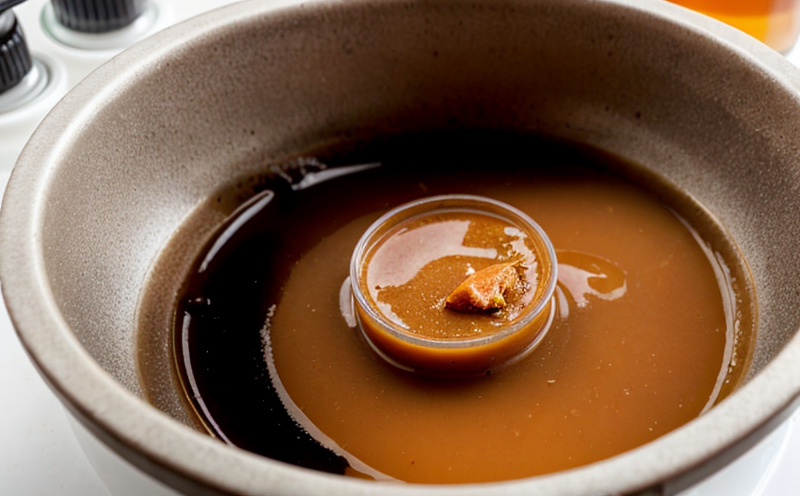ISO 17072 Pesticide Residue Testing for Trade and Sanitary Compliance
The International Organization for Standardization (ISO) standard ISO 17072:2015 outlines the requirements, criteria, and methods applicable to pesticide residue testing in foodstuffs. This service ensures that imported and exported goods meet stringent sanitary and phytosanitary standards set by international trade agreements like those enforced under World Trade Organization (WTO) protocols.
Pesticide residues can pose significant health risks if not controlled within permissible limits. Compliance with ISO 17072 is crucial for ensuring that agricultural products are safe for human consumption and do not violate import/export regulations set by governments worldwide. The standard provides a harmonized approach to pesticide residue analysis, reducing the complexity of compliance across different markets.
Our laboratory specializes in providing comprehensive testing services aligned with ISO 17072 requirements. We utilize advanced analytical techniques such as Liquid Chromatography Tandem Mass Spectrometry (LC-MS/MS) and Gas Chromatography Mass Spectrometry (GC-MS), which are instrumental in detecting trace levels of pesticides in various food matrices, including fruits, vegetables, grains, and processed foods.
The testing process involves meticulous sample preparation to ensure accurate results. This includes thorough extraction methods that target specific pesticide classes, followed by analysis using highly sensitive instruments capable of quantifying even minute amounts of residues. Our lab is equipped with state-of-the-art equipment compliant with the latest ISO standards, ensuring reliable and repeatable results.
Compliance with ISO 17072 not only protects public health but also fosters trust between trading partners by demonstrating adherence to global best practices in food safety and quality assurance. By offering this service, we help our clients navigate complex regulatory landscapes while maintaining high-quality standards that meet international trade requirements.
Our expertise extends beyond mere compliance; it includes providing actionable insights based on test results. This allows businesses to make informed decisions regarding their supply chains, product formulations, and marketing strategies. Understanding the nuances of ISO 17072 enables us to offer tailored solutions designed specifically for our clients' unique needs.
In summary, adherence to ISO 17072 is essential in today's interconnected global market where food safety concerns are paramount. Our laboratory stands ready to assist you in ensuring that your products comply with these stringent standards, thereby safeguarding both consumer health and international trade relations.
Why It Matters
The importance of ISO 17072 cannot be overstated as it directly impacts public health, environmental sustainability, and economic stability within the agricultural sector. Ensuring that pesticide residues in foodstuffs are controlled within acceptable limits is crucial for several reasons:
- Health Protection: Excessive exposure to certain pesticides can lead to adverse health effects ranging from mild irritation to severe chronic diseases.
- Environmental Stewardship: Proper management of pesticide use helps protect ecosystems and biodiversity, promoting long-term environmental sustainability.
- Trade Facilitation: Meeting regulatory requirements enhances market access for agricultural products by fostering trust among trading partners.
- Economic Benefits: Compliance with international standards can reduce the risk of recalls and legal disputes, thereby protecting brand reputation and financial stability.
By adhering to ISO 17072 guidelines, governments, businesses, and consumers alike benefit from a safer food supply chain. This standard ensures that agricultural products are not only safe but also meet the expectations set by international trade agreements.
Environmental and Sustainability Contributions
The implementation of ISO 17072 plays a pivotal role in environmental protection, fostering sustainable practices within the agricultural industry. By controlling pesticide residues through rigorous testing protocols, this standard promotes responsible use of chemicals that can otherwise harm natural habitats.
Our laboratory's commitment to sustainability extends beyond just compliance; it involves proactive measures aimed at minimizing waste and energy consumption during the testing process. We employ efficient sample preparation techniques that reduce chemical usage while maintaining accuracy and precision in results.
In addition, our expertise enables us to advise clients on best practices for reducing pesticide application rates without compromising crop yields. Through research and development activities focused on innovative pest management strategies, we contribute positively towards creating a more sustainable future.
By aligning ourselves with ISO 17072 standards, we support global efforts aimed at preserving natural resources and enhancing biodiversity across various ecosystems affected by agricultural practices. This collaborative approach ensures that our collective actions have far-reaching positive impacts beyond individual operations.
Use Cases and Application Examples
The application of ISO 17072 is wide-ranging, encompassing diverse scenarios encountered in international trade involving foodstuffs containing pesticide residues. Some notable use cases include:
- Agricultural Product Exporters: Ensuring that exported goods meet stringent import requirements set by target markets.
- Food Manufacturers: Verifying compliance with internal quality control standards and regulatory expectations during product development stages.
- Retailers: Providing transparency regarding the safety of sold products to consumers, thereby enhancing brand loyalty.
- Agricultural Research Institutions: Supporting scientific studies aimed at developing safer alternatives for pest management practices.
- Government Authorities: Establishing benchmark levels for pesticide residue limits based on local conditions and global best practices.
These examples highlight how ISO 17072 serves as a vital tool across multiple sectors, driving consistency and reliability in pesticide residue testing. Our laboratory offers comprehensive support tailored to address the specific challenges faced by each stakeholder group.





